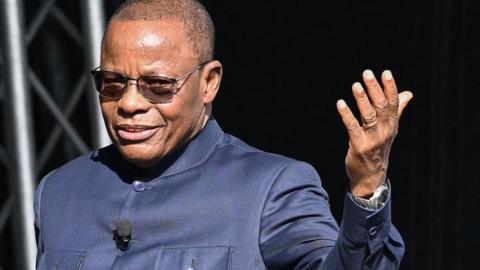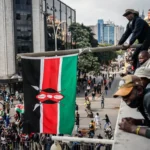Veteran Cameroonian politician Issa Tchiroma quits the government, declaring that President Paul Biya’s decades-long grip on power has “broken” public trust. His resignation marks the start of a bold campaign for the 2025 presidential election, calling for federalism and institutional reform in Cameroon.
Long-Time Biya Ally Turns Challenger
At 75, Tchiroma brings nearly two decades of cabinet experience. As Biya’s former Minister of Communication and, most recently, Minister of Employment, he now positions himself as a reformer. “A country cannot exist in the service of one man,” he said while announcing his resignation in Yaoundé on 25 June.
His newly released 24-page manifesto outlines a plan to dismantle the “old system” and transition Cameroon to a federal model of governance. This includes a referendum on devolving power to the country’s 10 regions—aiming to address the long-standing Anglophone crisis affecting the North-West and South-West provinces.
Cameroon Federalism at the Center of Reform
“Centralization has failed,” Tchiroma said, directly addressing English-speaking Cameroonians. “You do not need people to speak for you – you need to be listened to.” His call for regional autonomy speaks to the heart of a crisis that has displaced thousands over the past decade Issa Tchiroma quits.
The proposed referendum aligns with growing frustration in the Anglophone regions, where separatist insurgencies and economic marginalization have led to political instability and violent conflict.
Crackdown Begins: Government Pushback
Hours after Tchiroma’s announcement, the government banned his party, the Cameroon National Salvation Front (FSNC), from holding activities in parts of the Far North—his home region and political stronghold. This crackdown mirrors similar action taken against fellow opposition leader Maurice Kamto earlier this month Issa Tchiroma quits.
According to rights groups, the government’s reaction signals ongoing repression ahead of October’s presidential election. Parliamentary elections have already been postponed to 2026, further intensifying skepticism about the democratic process Issa Tchiroma quits.
Mixed Reactions: Can He Lead Real Change?

Reactions to Tchiroma’s bid have been divided. Political analyst Jules Domshe told the BBC, “By positioning himself as the elder statesman who ‘saw the fire coming,’ Tchiroma is hedging that his break with Biya will be seen as bold—not opportunistic.”
Others are more critical. Abdoulaye Harissou, a well-known political detainee and legal notary, remarked, “He cannot embody change… He was part of the system for too long. The youth do not trust him.” Opposition figure Jean Michel Nintcheu echoed this, saying: “We don’t see Tchiroma as a potential winner.”
Political Landscape Ahead of October
- High Youth Unemployment: One of the top issues fueling discontent.
- Rising Costs of Living: Economic hardship adds to public anger.
- Security Crises: Armed jihadists in the north and separatists in the west.
- Biya’s Silence: The 92-year-old president has not confirmed his candidacy.
Whether Issa Tchiroma quitting will truly shake Cameroon’s political foundations remains uncertain. But his pivot to federalism and public criticism of Biya’s rule mark one of the most significant challenges the ruling party has faced in decades.
Conclusion: A Reformer or a Retread?

As October nears, Cameroon enters a pivotal moment. Tchiroma’s past may hinder his credibility, but his defiance and push for federalism resonate in a nation exhausted by political stagnation.









